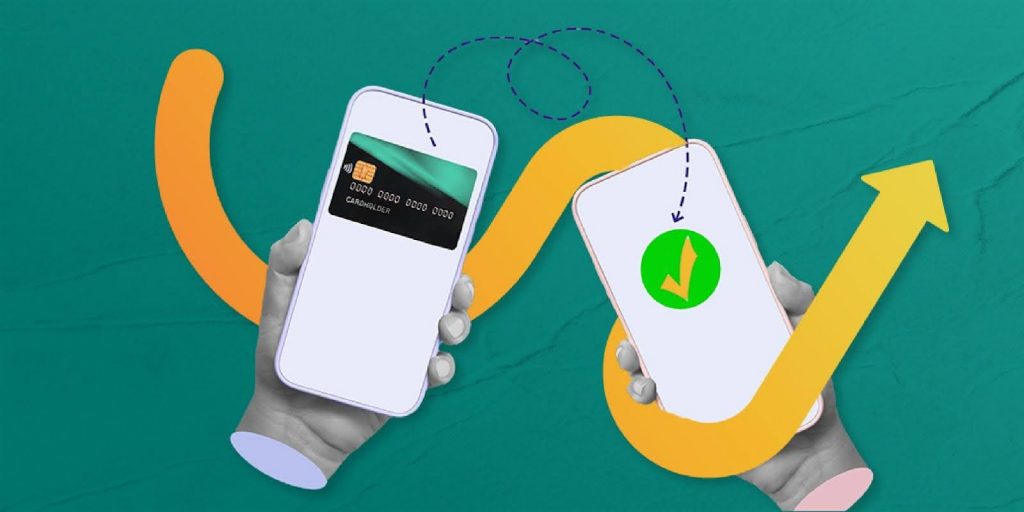
Domestic Money Transfer: A Comprehensive Guide
Sending money from one bank to another has become easier than ever. Today, you have the option to choose an electronic transfer of money from anywhere. Wire transfers allow you to transfer money across the globe electronically. On the other hand, domestic money transfers help people send funds easily within their own country.
Keep reading to learn more about domestic money transfer and further details.
What is Domestic Money Transfer?

Domestic money transfer allows you to send funds to any account in your country. Even if you don’t have a bank account, you can still transfer money through domestic transfer.
Each transfer processed through domestic money transfer is protected through computer systems. This means that domestic money transfers are safe, secure, and reliable.
Why Is Domestic Money Transfer Important?

Domestic money transfer helps you in sending money to your loved ones across the country. These transfers only take a single day to settle.
This means you don’t have to wait for days to get your funds. Click, Send, Relax!
How Much Does a Domestic Money Transfer Cost?
Sending money to your beloved sharing the same country is easy. With domestic money transfer, you can instantly transfer your funds – but what is the cost?
The fees for transferring money depend on many factors. The following are the most common kinds of fees you may come across while sending money:
- Outgoing and Incoming Fees
This type of fee depends on the bank you are using. There are several banks that charge separately.
Normally, outgoing wire transfer fees vary from $15-40 for domestic transfers. Meanwhile, incoming wire transfers range from $0 to $20.
To get an estimate for your transfer cost, you can reach out to your bank or transfer services.
- Intermediary Transfer Fees
There are some domestic money transfers that involve a third-party bank. This bank handles the money transfers between financial institutions.
This bank may charge a certain fee other than outgoing or incoming fees.
- Exchange Rates
Well, exchange rates are not a fee. Yet, this is a considerable money transfer cost. Ensure that you consider exchange rates to know what you are sending or how much you are going to receive.
- Extra Transfer Fees
There are several extra fees linked with domestic money transfers. This includes cancellation fees, bank fees, in-person transfer fees, etc.
Different Methods for Domestic Money Transfer

To make sure that you transfer your money swiftly, it’s important to look out for suitable options. Remember, look closely at all the specifics to choose the best.
1- Bank Transfers
Bank transfers are the most traditional way of sending money within the country. With bank transfers, you can easily send money to someone else’s account with just a click. Bank transfers are safe, reliable, and secure. Yet, it is not the fastest way to transfer money. So choose wisely!
2- Mobile Wallets
Mobile wallets are becoming more popular worldwide. You can use these apps to transfer money quickly. It also helps you to pay your bills, inquire about your balance, or view transaction histories.
3- Online Platforms
Online platforms across the world have revolutionised the way people transfer money. You can use these platforms to make transfers quickly and easily with unique IDs. The platforms have real-time processors and adaptable features to make your transfer easy.
Benefits of Domestic Money Transfer

Domestic money transfer is the quickest way to get your hands on money. Here are a few benefits of using domestic transfers.
- With domestic money transfers, you no longer have to wait for cheques to get approved. Just tap on the screen and send or receive your funds.
- Domestic money transfer helps you in preventing fraud. Your money is electronically wired, and your record is traceable.
- Domestic transfer services allow you to send money with zero delays. With an automated system, you can send money in a few clicks.
- With domestic transfers, you can send money to your loved ones, send payments, pay your bills, etc.
What Is the Difference Between a Bank Transfer and a Domestic Transfer?

A bank transfer is generally referred to a broader category, including domestic transfers. Bank transfers are the movement of money from one account to another. It can be processed within the same bank or even different banks.
Domestic remittances, on the other hand, involve the movement of money within the same country. However, the scope is different. Bank transfers can be domestic or international. However, domestic migration is limited within a country’s borders.
On the other hand, a domestic transfer involves the movement of money within the same country. However, the scope is different. Bank transfers can be domestic or international. However, domestic transfers are limited within the borders of a country.
So, if you want to send money within a state, the domestic transfer is the most convenient choice.
Tips for Simplifying Domestic Money Transfers
Research and Compare
Each platform offering domestic money transfer services has different limits. Before you start using them, make sure that you choose a platform that aligns with your needs. Look out for their transfer limits. Is it what you are looking for?
Use Online and Mobile Banking
One of the easiest ways to transfer your funds domestically is to use online banking. Since these options are traditional, there are no ifs and buts. Your money with such credible institutions is safe and can go nowhere.
So, if you don’t have time to verify all the other platforms, online banking is the safest option.
Set Up Automatic Payments
Running a business? Or have some monthly payments aligned? You can set up your payments on automation, too. With domestic transfer services in the UK, it’s easier to make your payment hassle-free. Add, click, and pay! Make sure that you double-verify all the details to avoid any errors.
Keep Track Of Your Transactions
With several applications across the UK, you can view your transaction histories easily.
Lost track of whether you have made the payment or not? This is going to be of big help! Make sure that you are maintaining a record of your transaction IDs and receipts.
Use a Secure Network
Before you start sending money, make sure you’re using a secure platform for your transfer. Use authentication factors to include all possible security measures.
Conclusion
Over the years, domestic money transfers have evolved greatly. Every day, these services are improving, providing specialised features for different needs.
Make sure to choose the right method when sending money, whether it’s through a bank or a mobile wallet. You can send money, pay bills and manage your finances using these secure and convenient platforms.
Stay updated with advancing technology and find platforms that suit you best.
Experience the ease and convenience of domestic money transfers today! Happy transfers.
Frequently Asked Questions
What does Domestic Money Transfer mean?
Domestic transfer is the process of sending money within the same country. This includes sending funds from a person, location, or account to someone close to you. It must be practised within the borders of a country.
How does domestic transfer work?
Domestic transfers are based on a few key steps. To initiate a transfer, provide the required information on the platform or service. This information should include the details of the payee and the amount. The amount is then deducted from your account and transferred to the recipient’s account. Easy!
How long does a domestic money transfer take?
The duration of domestic money transfer varies from platform to platform. Usually, this transfer can be completed in a few hours or instantly. Speed may be affected by several factors, such as banking hours and holidays.
What do I need for domestic transfer?
To send money within the country, you need all the recipient’s required details. This includes their name, account number, and bank information. Also, make sure your bank account has enough funds to cover the transfer amount. You may also need security information.
What do I need for domestic transfer?
International money transfers are a vital service for many people, allowing them to send money across borders quickly and securely. With TangoPay, you can enjoy a seamless and efficient process for your international money transfers.
TangoPay makes it incredibly easy and secure to send money internationally. Whether you’re using our mobile app or website, you can effortlessly initiate an international transfer with just a few clicks. TangoPay offers unbeatable exchange rates and low fees, ensuring you get the most value for your money.
